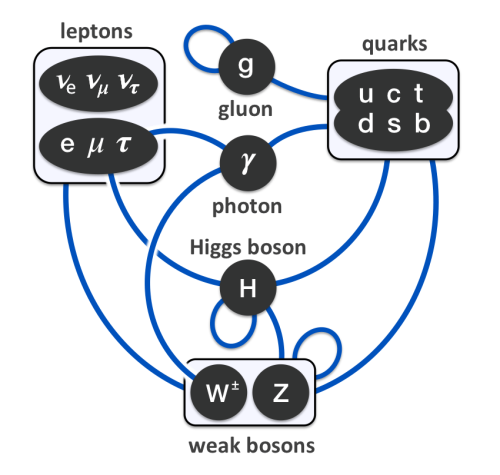
The Standard Model: wrong, but wonderfully wrong (Courtesy: Eric Drexler)
By Hamish Johnston
What is the greatest wrong theory in physics? Physicist Chad Orzel asks that question in his latest blog for Forbes and by wrong he does not mean incorrect, but rather incomplete. He makes the argument for the Standard Model, which he says has been wrong for a very long time – but continues to be phenomenally successful.
Putting a golf ball the last few metres in front of a hushed crowd must be one of the most nerve-wracking aspects of being a professional golfer. Some are better at it than others and Canadian Adam Hadwin was notoriously bad until physics came to the rescue. You can read about how a careful analysis of the crucial first 0.5 m of Hadwin’s putts led to a dramatic improvement. The secret, according to “The hole in Hadwin’s game”, is controlling the bounce and backspin of the ball.
Have you taken any nice photos that capture the essence of physics? If so, you have two more days to enter the Physics Pics competition that is organized by the Manchester and District branch of the Institute of Physics. Prizes of £50 will be awarded in each of four categories: primary school age; secondary school age; sixth form/college and adult. Entrants must be UK residents and a selection of entries will be exhibit at the Manchester Central Library during Manchester Science Festival 2017.
Guidelines
Show/hide formatting guidelines
this text was deletedwhere people live in harmony with nature and animals</q>
Some text